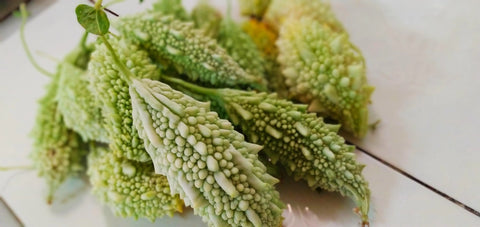Introduction: Your Gateway to Ayurvedic Wellness in NZ
Shatavari (Asparagus racemosus), a revered plant in traditional Ayurvedic medicine, is increasingly gaining recognition among health-conscious Kiwis for its profound medicinal properties. While especially celebrated for its ability to support women's reproductive health in NZ, this powerful herb offers a spectrum of potential benefits for overall well-being. In this article, we'll explore what Shatavari NZ is, its significant health advantages, common uses, and important considerations for those in New Zealand looking to incorporate it into their wellness journey.
What is Shatavari? Understanding the 'Queen of Herbs' in NZ
Shatavari, belonging to the Asparagus family, is native to India and also cultivated in other parts of Asia. It's easily identifiable by its delicate, uniform pine needle-like leaves, small white flowers, and distinctive blackish-purple berries. However, it's the plant's roots that are prized in Ayurveda and used for their therapeutic compounds.
Often hailed as the "queen of herbs" in Ayurvedic traditions, Shatavari is classified as an adaptogen. Adaptogen herbs NZ are natural substances considered to help the body adapt to various stressors, promoting balance and resilience.
Key Health Benefits of Shatavari for Kiwis Shatavari benefits NZ users by offering a holistic approach to health.
Here are some of its most valued properties:
-
Supporting Women's Reproductive Health with Shatavari NZ Shatavari is perhaps best known as a powerful female tonic. It's traditionally used in Ayurveda to:
- Regulate hormonal imbalances, supporting a healthy menstrual cycle.
- Enhance fertility in women by nourishing the reproductive organs.
- Support lactation in new mothers; research suggests it may increase prolactin levels, a hormone essential for milk production.
- Ease menopausal symptoms, offering natural Shatavari menopause NZ support.
-
Natural Anti-Inflammatory Power Shatavari root contains bioactive compounds, such as saponins (like shatavarin), which exhibit significant anti-inflammatory properties. This makes it potentially useful for reducing systemic inflammation, which can be beneficial for conditions like arthritis or inflammatory respiratory issues.
-
Promoting Digestive Health in NZ For those in NZ seeking digestive health support, Shatavari can be a gentle ally. It's known to:
- Soothe the digestive tract lining.
- Reduce inflammation in the gut.
- Improve gut motility, potentially aiding conditions like Irritable Bowel Syndrome (IBS).
-
Enhancing Immune System Function Shatavari demonstrates immunomodulatory effects, meaning it can help regulate and support the immune system. Its potential antimicrobial properties also suggest it could assist the body in fighting off infections, making Shatavari immune support NZ a sought-after benefit.
-
Supporting Respiratory Wellness Traditionally, Shatavari has been used to promote respiratory health. Its anti-inflammatory action may help soothe the respiratory tract and improve lung function, offering relief for conditions like asthma and bronchitis.
Traditional Uses & Modern Applications of Shatavari in NZ.
Kiwis are exploring Shatavari for a variety of health concerns:
- Menstrual Health & Hormonal Balance: Widely used to regulate menstrual cycles, alleviate PMS symptoms, and support women through menopause by promoting hormonal balance in NZ.
- Fertility Enhancement: Believed to support fertility in both men and women by nourishing reproductive tissues and potentially improving egg and sperm quality.
- Lactation Support for New Mothers: A popular choice for breastfeeding mothers in New Zealand looking to naturally enhance milk supply.
- Digestive Complaints: Used to address issues like heartburn, indigestion, and symptoms associated with IBS.
- Respiratory Conditions: Employed to ease symptoms of coughs, bronchitis, and allergies.
Potential Side Effects & Precautions for Shatavari Use
Shatavari is generally considered safe for most people when taken in appropriate doses. However:
- Some individuals may experience mild 1 digestive issues (like bloating or changes in bowel habits) or headaches.
- Allergic reactions are rare but possible, especially for those allergic to asparagus.
- Important Note for Pregnancy & Breastfeeding: While traditionally used for lactation, pregnant women should generally avoid Shatavari unless specifically advised by a qualified Ayurvedic practitioner or healthcare provider due to insufficient modern research on its effects during pregnancy. Breastfeeding women should also consult their healthcare provider.
Conclusion: Embrace Shatavari for Holistic Wellness in NZ.
Shatavari stands out in the world of Ayurvedic herbs NZ for its remarkable range of health benefits, particularly for women's health, digestive wellness, and immune support. While traditional wisdom and initial research are promising, ongoing studies continue to unveil the full potential of this "queen of herbs."
If you're in New Zealand and interested in integrating Shatavari benefits into your wellness routine, it's always best to consult with a healthcare provider or a qualified Ayurvedic practitioner first. They can help determine the right dosage for your specific needs and ensure it doesn't interact with any existing medications or health conditions.
Discover Quality Shatavari Supplements in Our NZ Store
Ready to experience the benefits of this Ayurvedic wonder? Our NZ store offers high-quality Shatavari powder NZ and Shatavari capsules NZ, carefully sourced to support your health journey. Explore our range today and take a step towards natural, holistic well-being!
References:
- Sharma, S., et al. (2018). Asparagus racemosus (Shatavari): A versatile female tonic. Pharmacognosy reviews, 12(23), 73–78.
- Verma, N., et al. (2020). Asparagus racemosus: An update review. Journal of Traditional and Complementary Medicine, 10(1), 54–59.
- Tiwari, M., et al. (2016). Immunomodulatory effects of Shatavari (Asparagus racemosus) root aqueous extract on immune cells. Journal of Ethnopharmacology, 194, 1075–1082.
- Khaleghi Ghadiri, M., et al. (2018). Asparagus officinalis supplementation improves blood lipid profile and oxidative stress status in healthy female subjects. Clinical Nutrition Research, 7(3), 182–191.




Comments (0)
There are no comments for this article. Be the first one to leave a message!